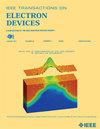元优化LDMOS工艺-器件协同优化:外推增强建模与晶圆级验证
IF 3.2
2区 工程技术
Q2 ENGINEERING, ELECTRICAL & ELECTRONIC
引用次数: 0
摘要
横向双扩散MOS (LDMOS)器件的准确、高效建模对于工艺优化和可靠性分析至关重要,特别是在有限的仿真预算下。然而,半导体器件的数据驱动建模面临三个关键挑战:由于计算机辅助设计(TCAD)和硅测量技术的高成本,训练数据有限;对外推或极端配置的不良泛化;模拟和测量数据之间存在差距,这削弱了实际用例中的预测可靠性。为了解决这些问题,本研究提出了一个与模型无关的元学习(MAML)框架,该框架提高了深度神经网络和卷积神经网络(cnn)对基于tcad的过程-设备建模的预测精度和适应性。为了进一步评估外推场景的泛化,我们引入了一个额外的样本数据集,其输入参数位于设计空间内,但其电气输出接近或超出原始训练范围。这种设置模拟了真实世界的边缘情况,在这种情况下,准确的预测对于安全操作区域(SOA)设计至关重要。随后,使用k-means聚类来定义不同的任务,从而实现特定于任务的微调。在这种配置下,基于mml的模型显示出显著的性能改进,接近分布内精度。此外,晶圆级实验进一步验证了模型的指导,证实了在不影响导通电阻的情况下击穿电压的改善。综上所述,这些结果表明,所提出的MAML框架有效地提高了半导体器件建模的模型泛化和样本效率,支持数据有限和分布移位条件下的可扩展性和鲁棒性预测。本文章由计算机程序翻译,如有差异,请以英文原文为准。
Meta-Optimized LDMOS Process–Device Co-Optimization: Extrapolation-Enhanced Modeling With Wafer-Level Validation
Accurate and efficient modeling of lateral double-diffused MOS (LDMOS) devices is critical for process optimization and reliability analysis, especially under limited simulation budgets. However, data-driven modeling for semiconductor devices faces three key challenges: limited training data due to the high cost of technology computer-aided design (TCAD) and silicon measurements; poor generalization to extrapolated or extreme configurations; and a gap between simulation and measured data, which undermines predictive reliability in practical use cases. To address these issues, this work presents a model-agnostic meta-learning (MAML) framework that improves the prediction accuracy and adaptability of deep neural networks and convolutional neural networks (CNNs) for TCAD-based process–device modeling. To further evaluate generalization to extrapolated scenarios, we introduce an additional dataset of samples whose input parameters lie within the design space but whose electrical outputs are near or beyond the original training range. This setup mimics real-world edge cases where accurate prediction is essential for safe operating area (SOA) design. Subsequently, k-means clustering is used to define distinct tasks, enabling task-specific fine-tuning. MAML-based models show significant performance improvements under this configuration, approaching in-distribution accuracy. Moreover, wafer-level experiments further validate the model’s guidance, confirming improvements in breakdown voltage without compromising on-resistance. Taken together, these results demonstrate that the proposed MAML framework effectively enhances model generalization and sample efficiency in semiconductor device modeling, supporting scalable and robust prediction under data-limited and distribution-shifted conditions.
求助全文
通过发布文献求助,成功后即可免费获取论文全文。
去求助
来源期刊

IEEE Transactions on Electron Devices
工程技术-工程:电子与电气
CiteScore
5.80
自引率
16.10%
发文量
937
审稿时长
3.8 months
期刊介绍:
IEEE Transactions on Electron Devices publishes original and significant contributions relating to the theory, modeling, design, performance and reliability of electron and ion integrated circuit devices and interconnects, involving insulators, metals, organic materials, micro-plasmas, semiconductors, quantum-effect structures, vacuum devices, and emerging materials with applications in bioelectronics, biomedical electronics, computation, communications, displays, microelectromechanics, imaging, micro-actuators, nanoelectronics, optoelectronics, photovoltaics, power ICs and micro-sensors. Tutorial and review papers on these subjects are also published and occasional special issues appear to present a collection of papers which treat particular areas in more depth and breadth.
 求助内容:
求助内容: 应助结果提醒方式:
应助结果提醒方式:


